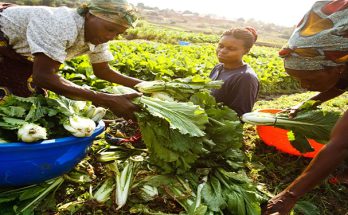
The favourable weather conditions, which were double the average rainfall in the region, prompted the government’s Crop Estimates Committee (CEC) to estimate the maize harvest will reach a record 15.6 million tonnes this year, which is double last year’s output.
Although this bumper harvest exceeds all expectations it will likely hit maize prices hard but at the same time will put a halt to inflation and escalating food prices. Also, the price drop is not good news for many of the arable farmers as they have incurred high debts.
With over 15 million tonnes of maize estimated, this year’s harvest is almost 6% higher than the market expectations of 14.73 million tonnes, and will be the largest crop of maize since 1981 when it reached 14.656 million tonnes, according to this fourth forecast says the CEC. This year’s maize harvest consists of an estimated 9.4 million tonnes of white maize, the regional staple mostly used for human consumption, and almost 6.2 million tonnes of yellow maize, the bulk of which goes to animal feed.
Food prices and inflation
September contract prices for the white maize fell 2.35% to R1,794 (US$140) per tonne which is around 65% lower than the record price ever achieved for it of R5,200 ($406) achieved in January 2016. Last year a severe drought hit crop yields hard and only 7.78 million tonnes of maize was harvested which pushed up food prices and inflation.
South Africa, as well as neighboring countries, is still recovering from the effects of last year’s drought caused by the El Nino climate pattern which led to food shortages.
More export opportunities
Agricultural economist, Wandile Sihlobo, said that this year’s harvest will be amazing.
He said: “Generally food will be one of the key issues that will keep our inflation down for quite some time this year. I look at the Reserve Bank numbers; they are looking at about 7.7% this year. We are looking at 7.4%, and they think that next year it could come down to any factor between 5 and 6%. So, on a food perspective, I think this is going to be a good year. We are drowning in maize because as a country we only need about 10.5 million tonnes of maize for our annual consumption.” He further commented: “To send this to the export markets, (it) is easier to export yellow maize because everybody needs it for their feeding market, but when it comes to white maize, it is only consumed by African countries as well as Mexico.”



